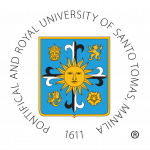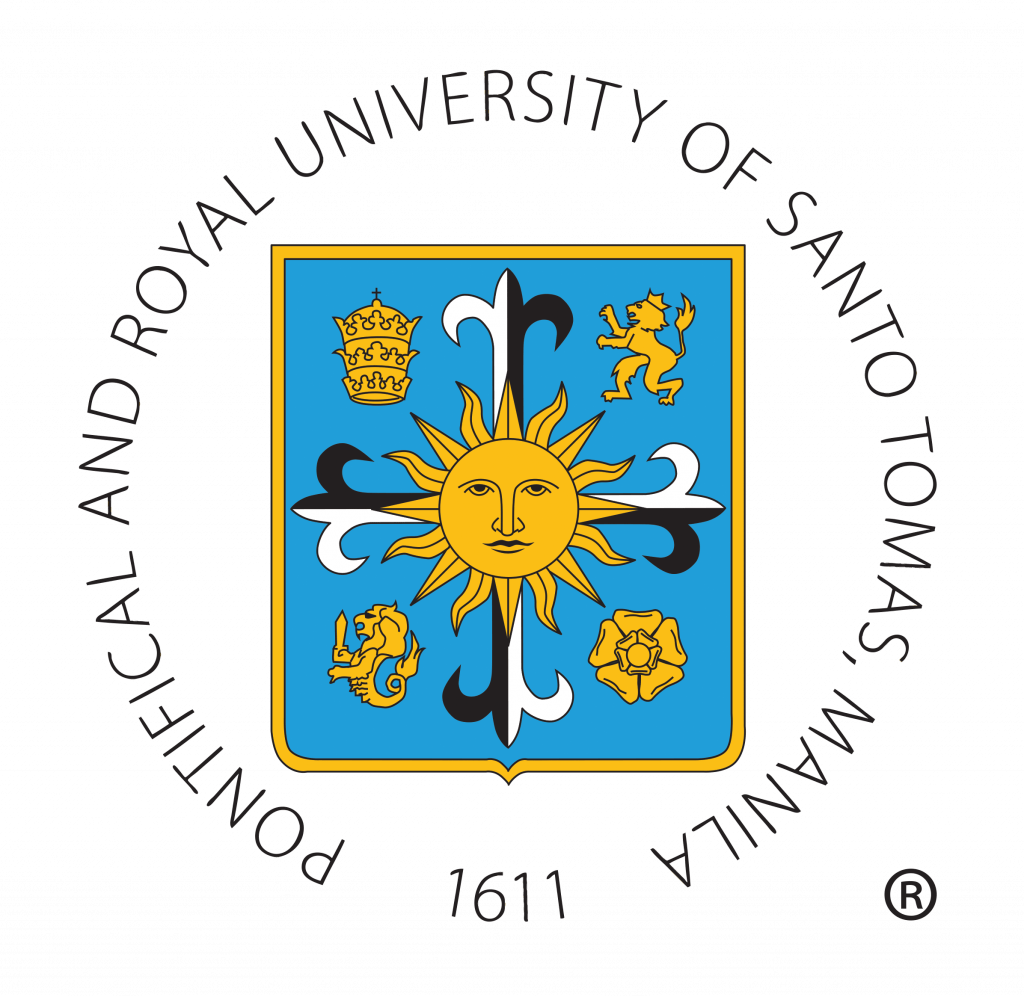Ecclesiastical Faculties
CLASSIFICATION OF STUDENTS
Students in the Faculty of Canon Law are classified as follows:
- Ordinary: those who pursue courses for the purpose of obtaining a degree;
- Special: those who take up individual subjects, either main or auxiliary, for their own advancement and without the intention of working for academic degrees;
- Auditors: those who attend classes in individual subjects or courses without obtaining credit.
General Admission Requirements
- The Faculty of Canon Law is primarily open to future members of the diocesan clergy. However, they are also open to religious men and women and lay persons, provided they meet the required qualifications (General Statutes, Art. 19.1; Veritatis Gaudium, Art. 31).
- To be admitted to the Faculty, clerics and religious must present a written permission from their respective Ordinary or Superior. Laypersons seeking admission to the Faculty should present a certificate of good moral character and a letter of recommendation from their respective Local Ordinary (General Statutes, Art. 19.; Veritatis Gaudium, Art. 31 and its Norms of Application, Art. 26, §1.1).
- All applicants must present valid credentials testifying their previous studies including their training in philosophy and theology. They should present academic credentials that will allow them to pursue graduate studies in the Philippines (see Veritatis Gaudium, Art. 32, §1). All new students must submit upon admission, other than the written recommendation of the Major Superior or Ordinary mentioned above, the following documents: a) Certificate of Good Moral Character and/or Honorable Dismissal from the previous school; b) Official Transcript of Records.
- The regulations for admission in the Faculty of Canon Law, in accordance with the Veritatis Gaudium are the following:
a. Those who have no previous training in philosophy or theology, including those who already hold an academic degree in civil law, must complete the first cycle, lasting for four semesters or two years (Veritatis Gaudium, art. 78, a). “Students who prove they have studied some of the subjects of the first cycle at an appropriate faculty or university institute may be dispensed from them” (Veritatis Gaudium’s Norms of Application, art. 62, §1).
b. “Students who successfully completed the philosophical-theological curriculum in a seminary or in a theological faculty can be admitted immediately into the second cycle, unless the Dean deems it necessary or opportune, prior to their admittance, to require that they take a preliminary course in Latin or in the fundamental concepts of Canon Law” (Veritatis Gaudium’s Norms of Application, art. 62, §1).
c. “Students who hold an academic degree in civil law may be dispensed from some courses of the second cycle (such as Roman Law and Civil Law), but may not be exempt from the three-year curriculum of studies for the Licentiate” (Veritatis Gaudium’s Norms of Application, art. 62, §2). - It is a requirement for admission that the applicant has a good command of the English language and a suitable knowledge of the Latin language. International applicants must present a certificate of their completion of the English proficiency evaluation from either TOEFL or IELTS.
- All applicants to the Faculty of Canon Law, unless they have already earned a degree from the other two Ecclesiastical Faculties, must take and pass the entrance examination. The entrance examination is normally composed of the Mental Ability Test, English Test, Latin Test, and an Essay Test. Other items may be added depending on the recommendation of the Admission Committee.
- No student may be admitted into the Faculty of Canon Law to work for a degree simultaneously with another academic degree from another faculty (General Statutes, University of Santo Tomas, 2014, Art. 47, no. 4).
- The admission of students to the Faculty is processed by the Admission Committee, whose functions are the following (see 2019 General Statutes, Art. 19, no. 3):
a. To evaluate the academic records and other pertinent credentials of applicants;
b. To administer the entrance examination when deemed opportune;
c. To propose to the Dean who, among the applicants, may be admitted after due verification of their qualifications. - The Admission Committee is composed of the Dean of the Faculty as Chair, the Secretary of the Ecclesiastical Faculties and, if needed, another Professor of the Faculty as members. In the admission of diocesan resident seminarians, the Rector of the Central Seminary should also be a member of this Committee. For matters that may require the decision of the Faculty Council, the members of the Faculty Council will have to be consulted.
Specific Admission Requirements for Programs and Degrees
First Cycle: Preparatory Program
This cycle is preparatory for admission to the Licentiate program in Canon Law, since it is intended for those who have no previous training in philosophy or theology. The cycle lasts for four (4) semesters or two (2) years.
- Written permission from their respective Ordinary or delegate. Laypersons seeking admission to the Faculty shall present a letter of recommendation or a certificate of good moral character from their respective local Ordinary;
- International students must accomplish all the legal requirements to pursue their studies in the University;
- Must have a working knowledge in Latin or must at least be willing to learn Latin;
- Must take and pass the entrance examination.
Second Cycle: Bachelor/Licentiate in Canon Law
The second cycle provides an in-depth study of the books of the Code of Canon Law and related disciplines, an introduction to the Code of Canons of Eastern Churches, Latin and other optional courses or exercises required by the Faculty (cf. Norms, 56, 2). Likewise, students are required to learn the methods of scientific research in the preparation of a written dissertation. The duration of this cycle is six semesters or three years, and ends with the conferment of the degree of Licentiate in Canon Law.
- Applicants who successfully completed the philosophical-theological curriculum in a seminary or in a theological faculty can be admitted immediately into the second cycle, unless the Dean deems it necessary or opportune, prior to their admittance, to require that they take a preliminary course in Latin or in the fundamental concepts of canon law (Norms of Application, art.57, no. 1);
- All applicants must submit a written permission from the respective Ordinary or delegate. Laypersons seeking admission to the Faculty shall present a letter of recommendation or a good moral character from their respective local Ordinary;
- International students must accomplish all the legal requirements to pursue their studies in the University;
- Only the applicants who have a good command of the English language and a suitable knowledge of the Latin language may be admitted;
- No applicant will be admitted unless s/he takes and passes the entrance examination.
Third Cycle: Doctorate in Canon Law (J.C.D)
Lasting for at least two (2) semesters or one (1) year, this cycle aims to bring students to perfect the canon law training necessary for scholarly research in view of preparing a doctoral dissertation and to interpret correctly the sources of law. In addition to Canonical Latin, students are required to take at least two (2) additional special courses or seminars and the corresponding units in thesis writing, complemented by a relevant and well-elaborated thesis, which must be the product of scholarly work and a contribution to the progress of the science of Canon Law (cf. Veritatis Gaudium’s Norms of Application, Art. 61, 3)
- Only those who have obtained a Licentiate in Canon Law in an Ecclesiastical Faculty with a grade of at least Cum Laude will be accepted for the third cycle;
- Applicants must submit a written recommendation/permission from the Ordinary or Major Superior;
- International students must accomplish all the legal requirements to pursue their studies in the University; they too must present a certificate of having completed an English proficiency examination from either TOEFL or IELTS.
- Applicants must have a suitable knowledge of the Latin language;
- All applicants must take and pass the entrance examination.
On Transferees
As a matter of general policy, the Faculty of Canon Law does not accept transferees. In meritorious cases, however, the matter will be referred to the Admission Committee or the Faculty Council.
Scholarships
- Students are given appropriate scholarship for their studies. All are however required to pay miscellaneous fees.
a. For seminarians pursuing the Licentiate program and residing in the Central Seminary, 100% discount on tuition fees.
b. For ordinary students with full load in the Second Cycle, 50% discount on tuition fees.
c. For other students, 20% on tuition fees. - Students will also be required to pay the other charges which include examination fees, thesis defense fee, thesis adviser fee, among others.
- Tuition, miscellaneous, examination and other fees vary from year to year and are based on the University’s computation of the charges.
- Students admitted to and enrolled in the Faculty of Canon Law are bound by that token to abide by and comply with all rules, regulations, policies and requirements of the Faculty and of the University of Santo Tomas. Students found wanting in the observance of rules, regulations, policies and requirements, particularly the observance of the study program, the attendance at classes and the taking of examinations shall be subject to commensurate disciplinary action as decided by the Dean or the Faculty Council.
- In cases of grave violation of regulations, students may be suspended or even expelled from the Faculty. However, the students involved shall always be given the chance to defend themselves and thus, to safeguard their rights in accordance with the procedure established in the Student Handbook of the University.
- All complaints against students’ misdemeanor should be formally forwarded to the Office of the Dean who shall initiate the investigation, and possibly determine the proper disciplinary action whenever applicable.
- To provide the students with an adequate forum for student dialogue, with a venue to exercise co-responsibility in their formation and with a representative body for their participation in the life of the Ecclesiastical Faculties, they shall have a Student Council to be governed by the rules of the Church and the University.
- Through the Student Council and its various commissions, the students shall be encouraged to organize academic, cultural, liturgical and community-service activities. These and other related activities, particularly the academic, are to be supervised by the Administration of the Faculty according to the principles of solidarity and subsidiarity.
The official student organization of the Faculty of Canon Law is known as UST Canon Law Society.
Important Links
Congregation for Catholic Education: http://www.educatio.va
University of Santo Tomas: www.ust.edu.ph
UST Miguel de Benavides Library: http://library.ust.edu.ph/
UST MyUSTE Student Portal: https://myuste.ust.edu.ph/
UST Directory: https://www.ust.edu.ph/contacts/
UST EDTech: https://www.elearningust.info/
Philippiniana Sacra: https://philsacra.ust.edu.ph/
Boletin Eclesiastico de Filipinas: http://boletineclesiastico.ust.edu.ph/
PONTIFICAL AND ROYAL UNIVERSITY OF SANTO TOMAS
Ecclesiastical Faculties
© Copyright 2021 . UST Ecclesiastical Faculties . All Rights reserved.

Contact us:
-
Ecclesiastical Faculties Father’s Residence Building
University of Santo Tomas
España Boulevard, Sampaloc
Manila 1015, Philippines -
(+632) 8731-4066
(+632) 3406-1611 local 8261 - ecclesiastical@ust.edu.ph
- @USTEccle
- @USTEccle
